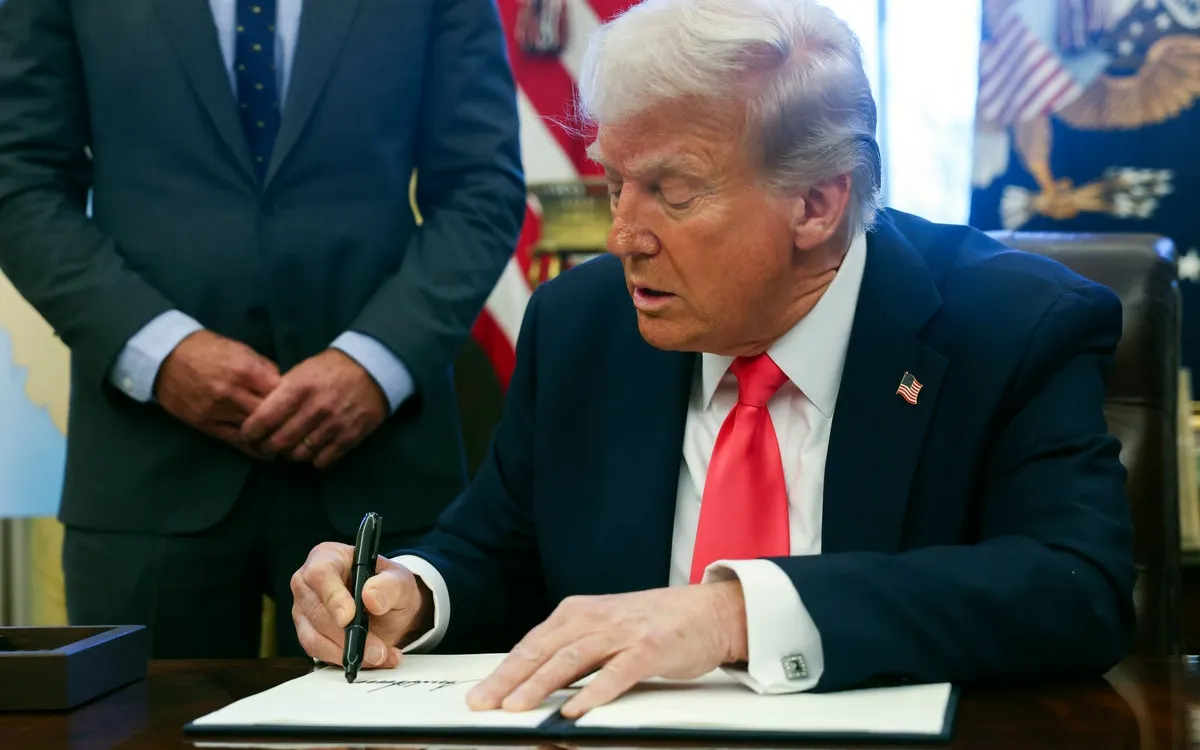
In a significant move, President Donald Trump has signed an executive order establishing English as the official language of the United States. This decision marks a reversal of a policy implemented during the Clinton administration. The executive order, signed on Saturday, empowers federal agencies and organizations receiving federal funding to determine whether they will continue to provide services and documentation in languages other than English.
This executive order effectively nullifies the mandate initiated by former President Bill Clinton, which required federal entities to offer language assistance to individuals who are non-English speakers. The new order emphasizes that establishing English as the official language is intended to enhance communication, fortify shared national values, and create a more cohesive and efficient society.
According to the order, “In welcoming new Americans, a policy of encouraging the learning and adoption of our national language will make the United States a shared home and empower new citizens to achieve the American dream.” It highlights that proficiency in English not only provides economic opportunities but also enables newcomers to engage meaningfully in their communities and participate in national traditions.
Currently, more than 30 states have enacted laws designating English as their official language, as reported by US English, an advocacy group promoting the establishment of English as the official language at the national level. Despite numerous attempts by lawmakers in Congress to pass legislation for this purpose over the decades, these efforts have largely been unsuccessful.
Shortly after Trump's inauguration last month, the new administration removed the Spanish language version of the official White House website, sparking confusion and frustration among Hispanic advocacy groups and other communities. The White House stated its intention to restore the Spanish version, yet as of Saturday, it remains offline. The administration has not provided updates regarding the potential restoration of this important resource.
This executive order has ignited discussions about the implications for non-English speakers in the United States, as the emphasis on English could reshape access to vital services and resources for diverse populations.